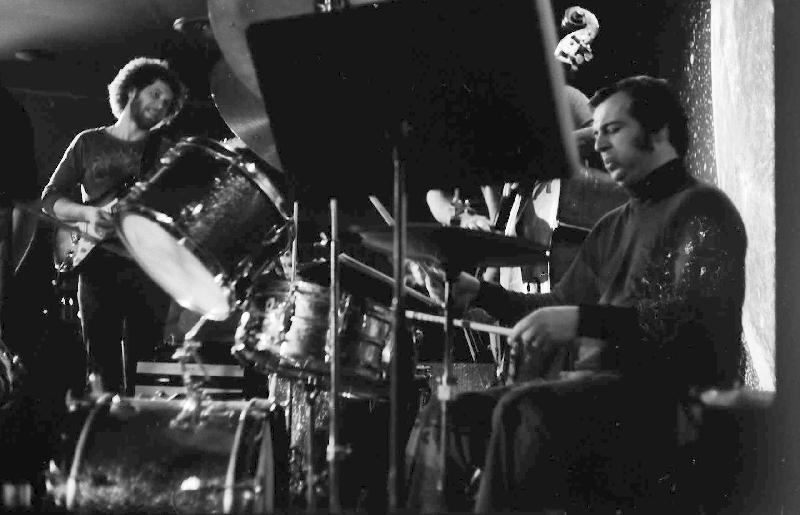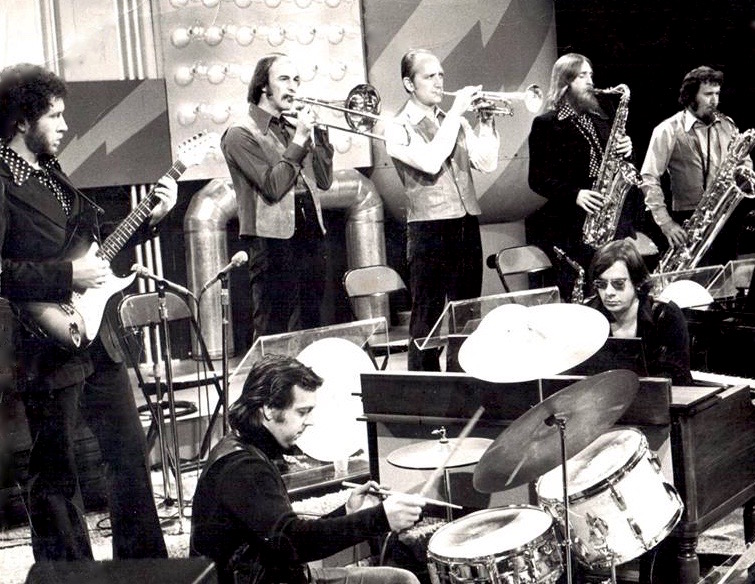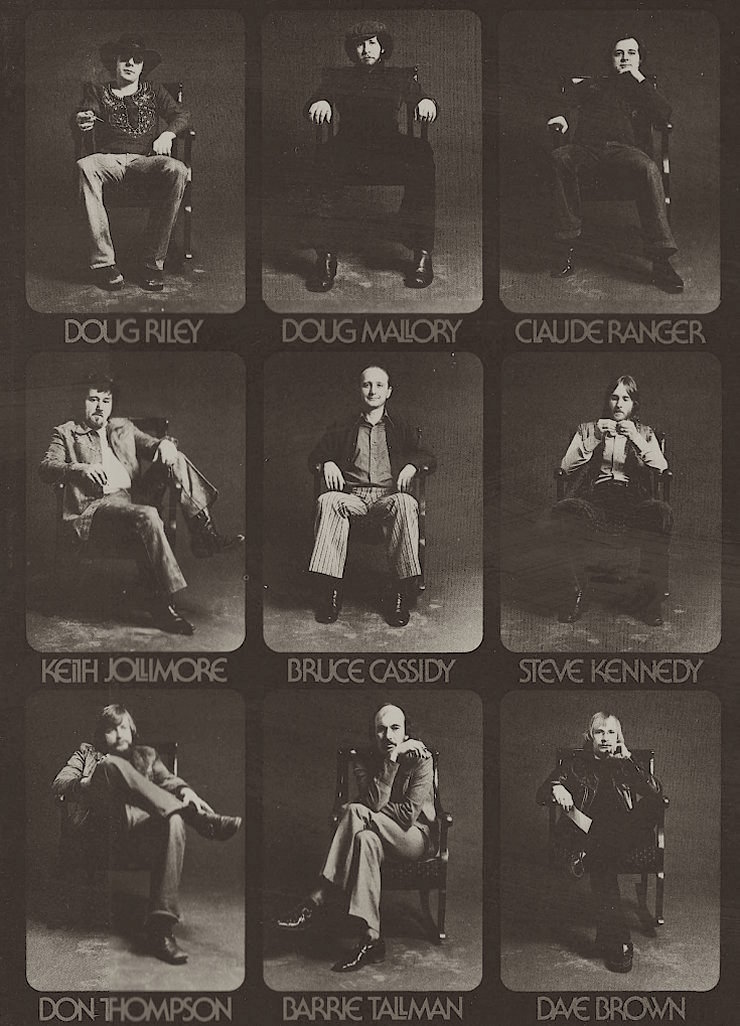
Toronto’s Dr. Music, a freeform jazz/R&B band with between 7 and 15 members, was the brainchild of noted arranger/keyboardist Doug Riley.
Doug Riley had been working for years behind the scenes on television shows as musical director. When he was asked to put together musicians for the 1969-1970 season of CTV’s ‘The Ray Stevens Show’ he assembled the nucleus of what would become Dr. Music. Following the cancellation of the show, Dr. Music remained together to record and tour.
Riley had by then become partners with British engineer/producer Terry Brown to form Toronto Sound Studio who’s clientele was mostly acts signed to fledgling GRT Records. Having previously released his solo album ‘Foxy Lady’ (featuring vocalist Terry Black) on GRT, Riley was able to get the label’s backing to release Dr. Music’s self-titled debut LP featuring the first single, ‘Try A Little Harder’ and its hit follow-up ‘Sun Goes By.’ The first version of Dr. Music disbanded shortly after this so that Riley could focus on his new studio position.
By 1973 Riley had assembled the second version of Dr. Music featuring a smaller 7-piece lineup which was essentially a retrofitted version of the ever evolving Motherlode and Lighthouse line-ups. The new group was received enthusiastically and they successfully completed a Western tour, an Eastern tour and a new album – ‘Dr. Music II’ before calling it quits in early 1974.
Riley returned to arranging, producing and working on television shows like CBC’s ‘Keith Hampshire’s Music Machine.’ In February 1974, during that show’s second season, Riley reformed Dr. Music for a third time as a house band for the show and to record another album – ‘Bedtime Story’ – a more progressive jazz-rock album whose title track was a Herbie Hancock cover. Alas, the band broke up shortly thereafter.
Riley later revived the Dr. Music concept with a handful of musical friends in 1984 and the result was ‘Dr. Music Circa 1984.’ Riley would continue on as a solo artist releasing such albums as ‘Dreams’ (1976), ‘Freedom’ (1990), and ‘Con Alma’ (1996).

LONG TIME COMIN' HOME
SHE'S FUNNY THAT WAY
VERSION I – 1972
Doug Riley (keyboards)
Laurel Ward (vocals)
Rhonda Silver (vocals)
Brenda Gordon (vocals)
Terry Black (vocals)
Diane Brooks (vocals)
Trudy Desmond (vocals)
Brian Russell (vocals)
Michael Kennedy (vocals, percussion)
Steve Kennedy (vocals, saxes, flute)
Bruce Cassidy (trumpet, fluegel horn)
Gary Morgan (saxes, flute)
Keith Jollimore (saxes, flute)
Barrie Tallman (trombone)
Kenny Marco (guitar)
Doug Mallory (guitar)
Don Thompson (bass)
Terry Clarke (drums)
I KEEP IT HID
IN MY LIFE
VERSION II – 1973
Doug Riley (keyboards + bass pedals)
Doug Mallory (lead vocals, guitar)
Michael Kennedy (vocals, percussion)
Steve Kennedy (vocals, saxes, flute)
Keith Jollimore (vocals, saxes, flute)
Barrie Tallman (trombone)
Wayne Stone (drums)
VERSION III – 1974
Doug Riley (keyboards)
Doug Mallory (lead vocals, guitar)
Steve Kennedy (vocals, saxes, flute)
Keith Jollimore (vocals, saxes, flute)
Bruce Cassidy (trumpet, fluegel horn)
Barrie Tallman (trombone)
Don Thompson (bass)
Claude Ranger (drums)
Dave Brown (second drums)
